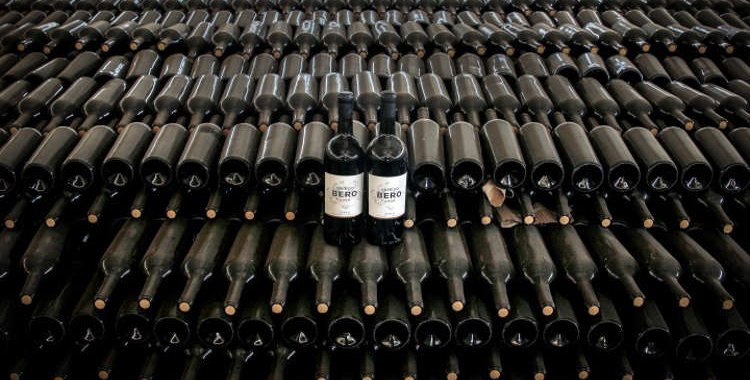It all started about 20 years ago when Paulo Múrias accepted a challenge from a friend to buy a farm in the area, Filipe Madeira, the owner's nephew, told Lusa on a visit to the Vale do Bero vineyards.
The agricultural entrepreneur started with an experience with olive groves – still without success – and turned to wine about four years ago, betting on Portuguese grape varieties, "the ones that are most successful in the Angolan market", reports the young man, current deputy director from the Malheiro Múrias family farm.
"We went in search of Portuguese grape varieties because Angolans have a preference for Portuguese wines, we have Touriga Franca, Touriga Nacional, Sousão and Aragonez", he details, adding that they also cultivate table grape varieties.
The farm has 24 hectares – four more will soon be added – and is crossed by the Bero river, the largest in this southern province.
The riverbed, dry by this time, only fills up again when the heavy rains come, flooding the meager plantations of some peasants who set up their mines there.
The heat of the desert, the sandy soils and the cold currents of Benguela give a characteristic 'terroir' to the vineyards of Vale do Berro, whose qualities were worked on by winemaker Mário Andrade for wine production, points out Filipe Madeira.
"He is a reference in the sector and he is here for love", because, underlines the person in charge, "to produce wine it has to be for love".
Thanks to the climatic characteristics and the light, the grapes are harvested twice a year - in February and in July/August - and the wine then ages for between eight and nine months before being bottled.
Currently, around 100,000 bottles of wine are produced per year, which began to be released on the market in 2020. For now, they are fully absorbed by the national market, but export is in the producer's plans.
Filipe Madeira highlighted that wine has been well received in Portugal and believes that, despite the strong competition from Portuguese wines, there would also be a market for Angolan wine, which he considered would arouse curiosity in consumers.
"Portugal is certainly in our plans. That's where the idea was born and that's where the grape varieties come from", he added, adding that the project was developed by South African specialists "with a lot of experience in the sector" who have passed on their ' know how' to Angolan workers.
Without giving any dates for the arrival of Vale do Bero to the Portuguese market, he admitted that "it will be soon", not least because the product has found receptivity.
"People travel and want to take a box, two boxes, and every time they take it to taste the 'feedback' is positive. When people learn that it is a wine produced in Angola, in the desert, they are curious", stressed the businessman .
In order to increase production, they want to entice other farmers to also start planting vines. "We want them to sell us the grapes, to gain scale and volume", emphasized Filipe Madeira.
Another of the ideas that is being matured is the promotion of wine tourism: "We want to build some 'bungalows' and organize tastings to receive tourists", said the official, underlining the potential of the region, known for its desert and beaches.
The owners have already invested around US$5 million in the project – their own funds, Filipe Madeira stressed – but, for the time being, sales still do not make up for the expenses. Even so, he assured: "Business is going well, better than we expected".
The deputy director of the company regretted, on the other hand, the difficulties created by banks in accessing credit, which hinder the development of Vale do Bero, which currently employs around 50 people and which will soon add another four hectares to its area of production.
"We are just waiting for material from South Africa to increase the vineyard, the land is already prepared", said Filipe Madeira. "Namibe was already a land of wine and grapes and we don't want to let that die", underlined the entrepreneur, noting that the bottles are also produced in Angola. And he concluded: "We want to make a contribution to the country's economy."







